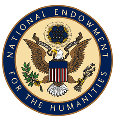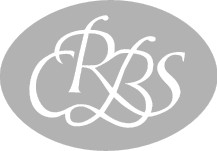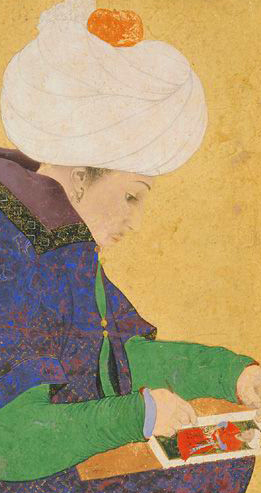Frequently Asked Questions
Click here for a printable version of FAQs (PDF)
Am I eligible to apply for this seminar?
I’m a graduate student; can I apply?
Can adjunct or part-time faculty apply?
How are individuals selected to participate in the seminar?
What is expected of seminar participants?
How much is the stipend?
When will I get my money?
How will the stipend affect my taxes?
How do I apply?
What should I include with my application?
Can I mail the application?
Can I submit my application electronically?
When will I hear from you?
I still have questions. Whom should I contact?
Am I eligible to apply for this seminar?
This program is funded by the National Endowment for the Humanities so we are strictly bound by their eligibility rules. These projects are designed primarily for teachers of American undergraduate students. Qualified independent scholars and those employed by museums, libraries, historical societies, and other organizations may be eligible to compete provided they can effectively advance the teaching and research goals of the seminar or institute. Applicants must be United States citizens, residents of U.S. jurisdictions, or foreign nationals who have been residing in the United States or its territories for at least the three years immediately preceding the application deadline. Foreign nationals teaching abroad at non-U.S. chartered institutions are not eligible to apply. Applications from community college faculty, first-time participants, and adjunct faculty are encouraged.
Adjunct and part-time lecturers are eligible to apply. Individuals may not apply to study with a director of a seminar or institute who is a current colleague or a family member. Individuals must not apply to seminars directed by scholars with whom they have studied. Institute selection committees are advised that only under the most compelling and exceptional circumstances may an individual participate in an institute with a director or a lead faculty member who has guided that individual’s research or in whose previous institute or seminar he or she has participated.
I’m a graduate student; can I apply?
Yes, subject to the NEH eligibility rules. This year, two spaces in the seminar will be reserved for current full-time graduate students in the humanities.
Can adjunct or part-time faculty apply?
Yes, provided you meet the NEH eligibility requirements note above. The seminar is designed for anyone who teaches in a college or university.
How are individuals selected to participate in the seminar?
A selection committee reads and evaluates all properly completed applications in order to select the most promising applicants and to identify a number of alternates. Seminar selection committees typically consist of the project director and two colleagues. While recent participants are eligible to apply, selection committees are charged to give first consideration to applicants who have not participated in an NEH-supported seminar, institute or Landmarks workshop in the last three years (2007, 2008, 2009).
The most important consideration in the selection of participants is the likelihood that an applicant will benefit professionally. This is determined by committee members from the conjunction of several factors, each of which should be addressed in the application essay. These factors include:
- the applicant’s quality and commitment as a teacher, scholar, and interpreter of the humanities;
- the applicant’s intellectual interests, both generally and as they relate to the work of the seminar or institute;
- the applicant’s special perspectives, skills, or experiences that would contribute to the seminar or institute;
- the applicant’s commitment to participate fully in the formal and informal collegial life of the seminar or institute;
- the likelihood that the experience will enhance the applicant’s teaching and scholarship; the conception and organization of the applicant’s independent project;
- the applicant’s potential contribution to the seminar.
When choices must be made among equally qualified candidates, several additional factors are considered. Preference is given to applicants who have not previously participated in an NEH seminar, institute, or Landmarks workshop, or who significantly contribute to the diversity of the seminar or institute.
What is expected of seminar participants?
Seminar and institute participants are required to attend all meetings and to engage fully in the work of the project. During the project’s tenure, they may not undertake teaching assignments or any other professional activities unrelated to their participation in the project. Participants who, for any reason, do not complete the full tenure of the project must refund a pro-rata portion of the stipend.
At the end of the project’s residential period, participants will be asked to submit online evaluations in which they review their work during the summer and assess its value to their personal and professional development. These evaluations will become part of the project’s grant file and may become part of an application to repeat the seminar or institute.
How much is the stipend?
“Re-mapping the Renaissance: Exchange between Early Modern Islam and Europe” is a three-week seminar. Individuals selected to participate will receive $2,700. These stipends are intended to help cover travel expenses to and from the project location, books and other research expenses, and living expenses for the duration of the period spent in residence. Stipends are taxable. Applicants to all projects, especially those held abroad, should note that supplements will not be given in cases where the stipend is insufficient to cover all expenses.
When will I get my money?
The first installment will be available to participants when they arrive, less the amount that the Center will deduct to defray the cost of housing for the three weeks. Other possible deductions include any fees related to campus services that participants may choose to use, such as accounts to print from campus computers, meal plan accounts, or fees related to the use of Campus Recreation Services. Participants will receive the second installment of their stipends mid-way through the seminar.
How will the stipend affect my taxes?
Neither the NEH nor the program directors can answer that definitively. Please see your tax advisor. You will receive a 1099 form from the University of Maryland for the entire amount. You should maintain records of your expenses and retain all related receipts.
How do I apply?
Visit www.crbs.umd.edu/programs/re-mapping_the_renaissance/application.html and follow the instructions.
What should I include with my application?
You must submit the following:
- The NEH cover sheet;
- A resume or brief biography;
- Two letters of recommendation, which may be from inside or outside the applicant’s home institution. They should be familiar with the applicant’s professional accomplishments or promise, teaching and/or research interests, and ability to contribute to and benefit from participation in the seminar or institute. Referees should be provided with the director’s description of the seminar or institute and the applicant’s essay. Applicants who are current graduate students should secure a letter from a professor or advisor. Please ask each of your referees to sign his/her name across the seal on the back of the envelope containing his/her letter, and enclose the letters with your application. If you apply electronically, letters of recommendation must be mailed to the above address and recieved by by the March 2, 2010 deadline.
- An application essay of not more than four double-spaced pages. This essay should include any relevant personal and academic information. It should address reasons for applying; the applicant’s interest, both academic and personal, in the subject to be studied; qualifications and experiences that equip the applicant to do the work of the seminar or institute and to make a contribution to a learning community; a statement of what the applicant wants to accomplish by participating; and the relation of the project to the applicant’s professional responsibilities. Be sure to discuss any independent study project that is proposed beyond the common work of the seminar.
Can I mail the application?
Yes, mail the completed application (including letters of recommendation) to:
Adele Seeff
Director
Center for Renaissance &
Baroque Studies
0139 Taliaferro Hall
University of Maryland
College Park, MD 20742
Mailed applications must be postmarked by March 2, 2010.
Can I submit my application electronically?
Yes. Should you decide to apply electronically, send one PDF containing all documents to crbs@umd.edu, with “NEH Application” as the subject line.
Your electronic application must be received no later than March 2, 2010.
When will I hear from you?
You be notified by April 1, 2010. You will have until April 10, 2010 to accept or decline the offer. Applicants who will not be at your home address during the notification period are advised to provide an address and phone number where they can be reached. No information on the status of applications will be available prior to the official notification period.
I still have questions. Whom should I contact?
Please contact the Center for Renaissance & Baroque Studies at crbs@umd.edu, or call 301-405-6830.
EQUAL OPPORTUNITY STATEMENT
Endowment programs do not discriminate on the basis of race, color, national origin, sex, disability, or age. For further information, write to the Equal Opportunity Officer, National Endowment for the Humanities, 1100 Pennsylvania Avenue, N.W., Washington, D.C. 20506. TDD: 202/606 8282 (this is a special telephone device for the Deaf).
Application Instructions | National Endowment for the Humanities |
Center for Renaissance & Baroque Studies | Back to Top




